SUMMARY
This is AI generated summarization, which may have errors. For context, always refer to the full article.
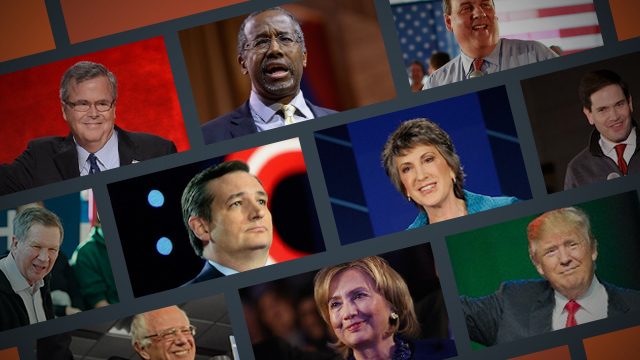
MANILA, Philippines – After coming in at second place in the Iowa caucuses, Vermont Senator Bernie Sanders and real estate mogul Donald Trump have cruised to stunning victories in the New Hampshire primary, both winning for their respective parties. The numbers, however, may come as a bit of a surprise for the candidates and the establishment of the Democrat and Republican parties. (READ: #USvote: ‘Takeaways from New Hampshire‘ )
#USvote: The New Hampshire primary
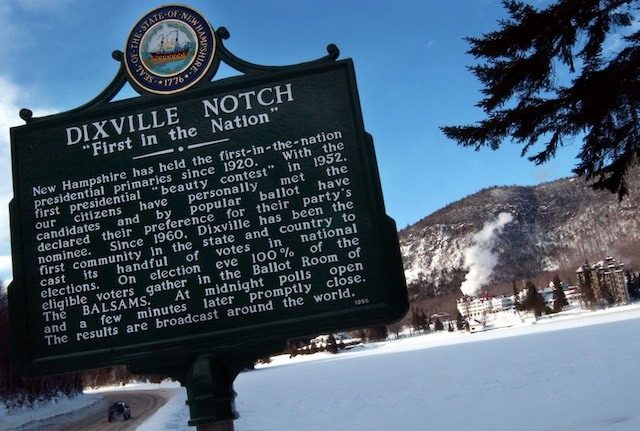 READ:
READ:- #USvote: Takeaways from New Hampshire
- #USvote: Trump, Sanders win big in New Hampshire
- New Hampshire goes to the polls in crucial US vote
- New Hampshire: Small state, big deal in US election
- Donald Trump: Celebrity billionaire, next US president?
- Republican John Kasich has his moment in New Hampshire
Big win for Trump, Sanders
In a stark contrast to their performance in the Iowa caucus, Sanders and Trump had sizeable leads in their New Hampshire win.
Trump got 35.3% and Sanders got 60.4% of the votes of their respective parties.
More than Trump’s win, however, Ohio Governor John Kasich had a strong showing, taking second place in the primary with 15.8%. The governor tied with former Hewlett-Packard CEO Carly Fiorina for 7th place in the Iowa caucus, with 1.9%.
Ted Cruz finished in third place with 11.7%, Jeb Bush at fourth with 11%, Marco Rubio at fifth with 10.6%. Chris Christie was at sixth place with 7.4%.
Following their poor performance in New Hampshire, Christie and Fiorina suspended their bid for the White House. Jeb Bush, meanwhile, said the ‘campaign is not dead’ and that they are preparing for South Carolina.
Meanwhile, Clinton received 38% of the Democrat votes, trailing Sanders by an unexpected double-digit margin of 22.4%.
Hillary Clinton won the Iowa caucuses by a hair’s breadth, 49.9% over Sander’s 49.6%. Cruz won the Iowa caucus for the GOP, with 27.6% of the votes. Trump came in second with 24.3% and Rubio got third place with 23.1%.
Campaign Boosts, Problems
Trump, the brash billionaire who has never held or run for public office, and Sanders, the self-declared democratic socialist, were both seen as the outsiders when they launched their bid for their party’s nomination. The victories by the two candidates show a deep discontent by each party at professional politicians. It also suggests both races will now be a long one that may likely stretch into the upcoming contests in March.
On the Democrat side, Sanders’s win in New Hampshire is a blow to Hillary Clinton. The state has long been kind to the Clintons: it helped Bill Clinton with his comeback in 1992, and Hillary won the state in 2008, salvaging her campaign following a third-place finish in Iowa.
The Clinton campaign quickly conceded and said they are setting their sights on the upcoming March primaries in South Carolina and Nevada. The former Secretary of State is holding a substantial lead in both states, with Clinton leading Sanders even in minority votes.
“After splitting the first two contests, an outcome we’ve long anticipated, attention will inevitably focus on the next two of the ‘early 4 states,” Robby Mook, campaign manager for Hillary for America, wrote in a memo.
The Sanders camp hopes that their definitive win in New Hampshire can catapult the Vermont senator and close (or at least minimize) the gaps in both South Carolina and Nevada.
“The nomination will very likely be won in March, not February, and we believe that Hillary Clinton is well positioned to build a strong – potentially insurmountable – delegate lead next month,” Mook continued in his email.
The memo from the Clinton campaign pointed out they are counting on her “high levels of support in the African American and Hispanic communities” to give her the edge over Sanders in a protracted Democratic primary race.
Mook also argues that while the former first lady has been in the public spotlight for years, scrutiny of Sanders will only increase as the race for the Democratic nomination goes on.
The Online Conversation
While Trump’s win was expected, it still did not sit well with many people. The Huffington Post did not pull their punches when it came to calling the New Hampshire GOP primary for Trump.
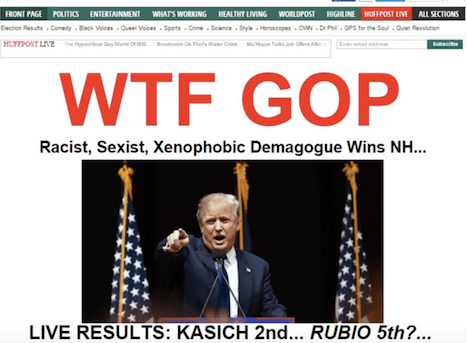
Trump supporters, however, did not let their voices be left unheard.
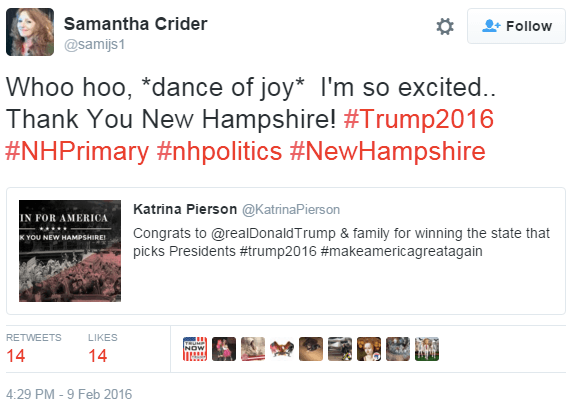
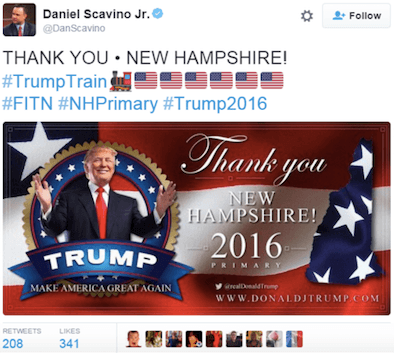
The Share of Voice for Trump’s win was generally neutral at almost 85%, with positive posts at almost 10% and negative mentions at 6%.
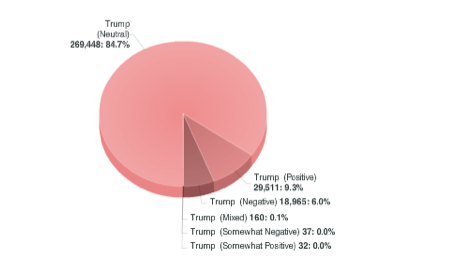
Kasich supporters also expressed their support for the comeback of the Ohio governor.
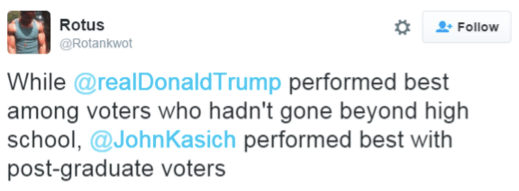
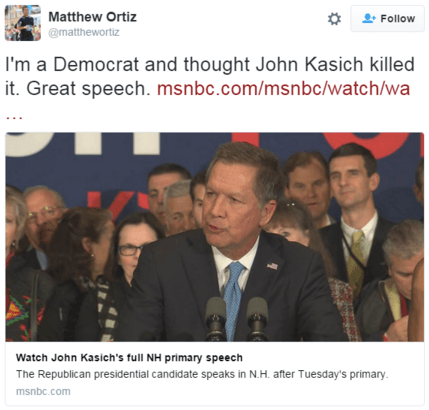
Despite finishing third, Ted Cruz and his supporters still see his New Hampshire finish as a strong performance.
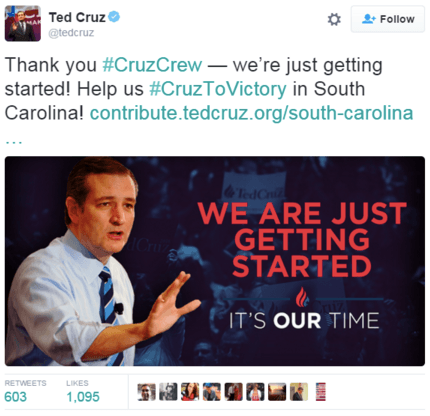
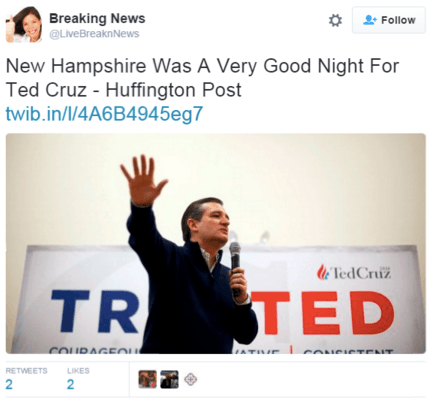
In terms of social media listening, Trump won the online conversation, with almost 70% of posts talking about him. 21.6% were talking about Ted Cruz and almost 9% were about John Kasich.
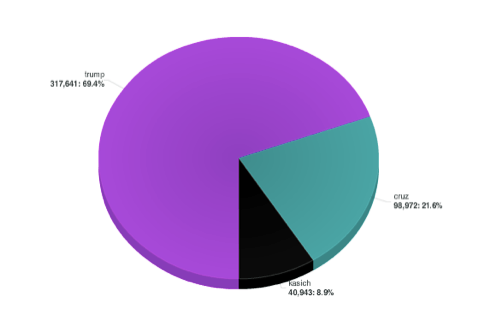
On the Democratic side, Sanders came out as the clear winner in social media with 64.5% of the total mentions. Clinton had 35.5% of the total mentions.
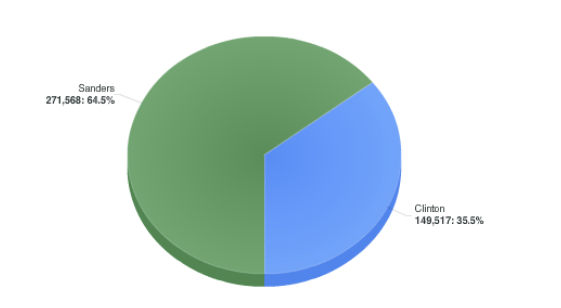
Posts about Sanders and Clinton were generally neutral, with more positive than negative mentions.
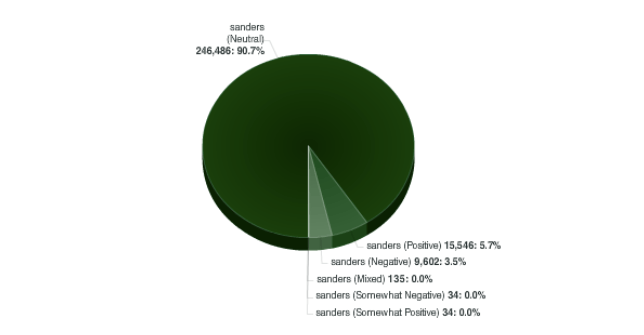
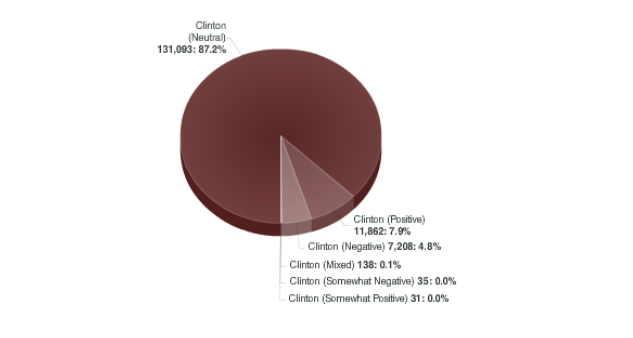
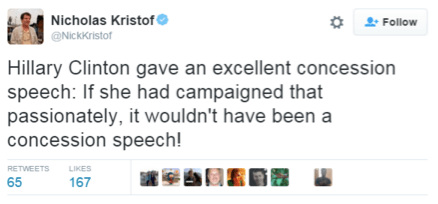
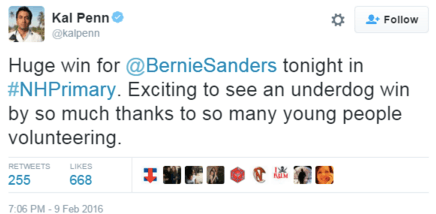
Here in the Philippines, the New Hampshire primary did not get a lot of traction, with posts being generally neutral.
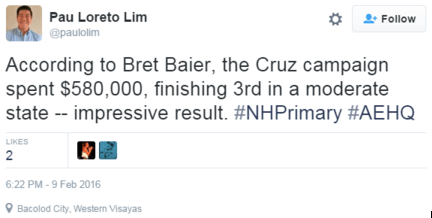
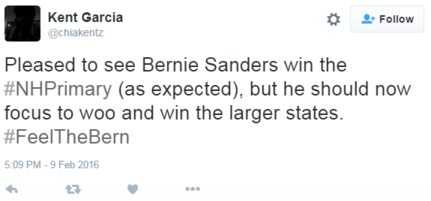
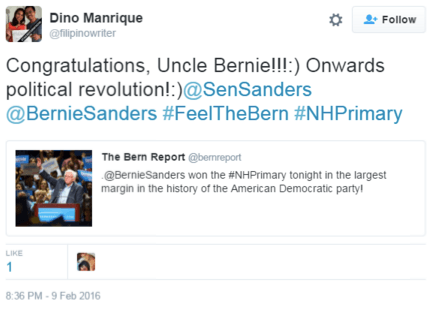
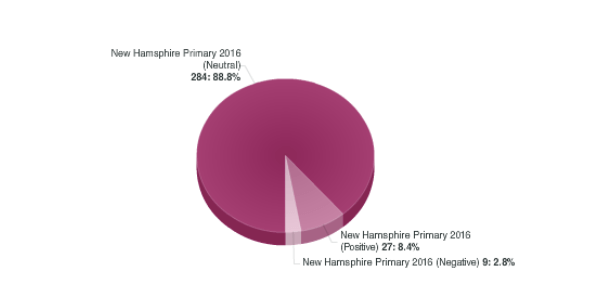
Key Takeaways
Politicians and candidates, both in the US and here locally, can learn a few things from the New Hampshire primary.
For one, the minority is not really the minority. A grassroots approach to campaigning can drive huge numbers for a candidate. Ignoring or not touching base with a certain demographic group could turn out to be a huge loss for a political aspirant come election time.
Debates matter. These discussions provide voters with a glimpse of how well candidates perform under pressure. It provides a venue where candidates can present their platforms, clear up issues, and engage in friendly, intellectual discussions with other aspirants. Hopefully, the upcoming Comelec debates will help make for more informed voters.
Anything can happen. Despite different surveys, candidates without much exposure can still come out on top or have a strong performance. While the local elections focuses a lot on popularity, survey results are by no means a strong forecast of things to come.
As long as voters do their part in being informed and cast their votes based on their heart and mind, predictions and surveys will not have a big effect on the actual election outcomes. The voice of the people will still emerge. – Rappler.com
Conrado, or Billy as he is fondly called, is a Senior Writer for AFDigital. He is a news hound, a journalist, a motivator, and a home cook who considers himself as the third member of ‘The Fabulous Baker Brothers’. When he’s not in the kitchen, he spends his time reading, travelling, sleeping, or writing. Follow Billy on Twitter, @pilsBILLYdohboy.
Paolo B. Aguas is a Reports Analyst for AFDigital. A film lover by heart, he is a connoisseur of fine rhum and artisanal lechon. He is very passionate about the Boston Celtics and you are likely to find him at a basketball court nearby in his spare time. Follow him on Instagram and Twitter, @fearthebeardPA.
AFDigital is a Creative Marketing Technology Services company that serves big clientele locally and internationally. It is also the Authorized Reseller and Services Partner of Salesforce Marketing Cloud in Asia.
Radian6 is an online tool under the Salesforce brand. This social media monitoring tool helps organizations dynamically engage customers through social media platforms.
Add a comment
How does this make you feel?
There are no comments yet. Add your comment to start the conversation.